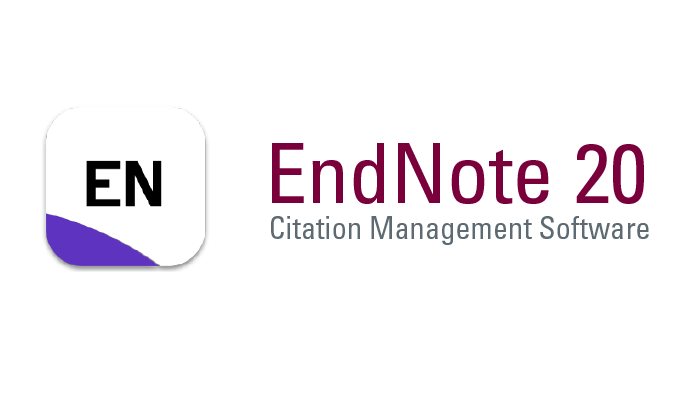COVID-19 DALAM KAJIAN QAWAID FIQHIYAH
DOI:
https://doi.org/10.47887/amd.v2i1.23Keywords:
Covid-19, Islamic Law.Abstract
This study tries to assess the level of danger of covid-19 in the study of qawaid fiqhiyah. So that the level of vigilance is found based on the study of fiqh. There are several fiqhiyah principles that serve as basic guidelines in fostering human behavior in dealing with COVID-19, there are also some changes in the basic provisions (hukum ashal) to new provisions, which changes according to the level of the virus. The fiqhiyah rules that are relevant to this study are; 1) التيسير تجلب المشقة (difficulty can bring fast), which this rule describes the difficulties obtained from the process of spreading COVID-19 can abort obligations and change the basic provisions. 2) الضرورة تبيح المحظورات (the condition of the dharurat allows something that is forbidden), from the other side this rule also describes the same thing as the rule above, where dharurah is an excuse to fail an obligation and may do things that were originally prohibited. 3) ما أبيح للضرورة يقدر بقدرها (Something What is Allowed because dharurah is Measured According to the Level of ‘Endanger’), this rule describes the level of permissibility or legal relief that arises due to the spread of COVID-19 not absolutely, but it is adjusted to the level of the spread zone. 4), الضرر يزال (‘Endanger’ must be eliminated), in the spread of COVID-19, this rule becomes the basic guide for the new obligations, namely eliminating harm caused by the spread of COVID-19 by following health protocols. 5) قد نزلت منز لة الضرورة عامة كانت أو خاصة الحاجة (hajah;pretention Occasionally Occupies Emergency Positions either General or Special), this rule describes the desire with special criteria parallel to dharurah independently, such as hajah means, isolation of dharurah as a washilah to keep other people from being exposed.
References
Abubakar, Al Yasa’. (2012). Metode Istishlahiah Pemanfaatan Ilmu Pengetahuan dalam Ushul Fiqh. Banda Aceh: Diandra Primamitra Media.
Abubakar, Al Yasa’. (2020). Perang Melawan Covid. Diakses 05 Juli 2020, dari http://alyasaabubakar.com/2020/04/perang-melawan-COVID-19-fiqih-antisipatif/.
Al-Sadlan, Salih bin Ghanim. (2000). Al-Qawa’id al-Fiqhiyyah al-Kubra wa ma Tafarra’a ‘Anha. Riyaḍ: Dar al-Balansiyah.
al-Syaṭibi, Abu Isḥaq bin Ibrahim. (2003). Al-Muwafaqat, (Jilid I). Beirut: Dar al-Kutub al-’Ilmiyah.
Al-Zair, Walid Salahuddin. (2010). Dhawabit al-Hajah al-Lati Tanzilu Manzilah al-Dharurah wa Tatbiqatuha ‘ala al-Ijthad al-Mu’asirah. Majallah Jami’ah Dasakus li al-‘Ulum al-Iqtiṣadiyyah wa al-Qanuniyyah, (26)2.
As-Suyuthi, Abd ar-Rahman bin Abi Bakr. (1983). Al-Asybah wa al-Nazhair. Beirut: Dar al-Kutub Ilmiyyah.
As-Suyuthi, Jalaluddin Abdul Rahman bin Abi Bakr. (2006). Al-Asybah wa al-Nazhair, (Cet-II, Jilid-1). Cairo: Dar al-Salam.
Az-Djazuli. (2010). Kaidah-Kaidah Fikih. Jakarta: Kencana Prenada Media Group.
Azzam, Abdul Aziz Muhammad. (2005). al-Qawa’id al-Fiqhiyah. Dar al-Hadis.
Az-Zuhaili, Wahbah. (1999). Konsep Darurat dalam Hukum Islam (Terjemahan). Jakarta: Gaya Media Pratama.
Beribadah Di Tengah Wabah Covid-19. (2020). Diakses 05 Juli 2020, dari https://aceh.tribunnews.com/2020/04/17/beribadah-di-tengah-wabah-covid-19.
Djazuli, Ahmad. (2000). Ushul Fiqh, Metodologi Hukum Islam, (Cet-1). Jakarta: RajaGrafindo Persada.
Haq, Abdul. (2005). Formulasi Nalar Fiqh, Telaah Kaidah Fiqh Konseptual. Surabaya: Khalista.
Menimbang Fatwa Kunci Mesjid. (2020). Diakses 05 Juli 2020, dari https://islamsantun.org/menimbang-fatwa-kunci-masjid-dan-tidak-shalat-jumat.
Pembagian Zona Wilayah Penyebaran Corona. (2020). Diakses 02 Juli 2020, dari https://nasional.kontan.co.id/news/inilah-pembagian-zona-wilayah-penyebaran-corona-berdasarkan-risiko?page=4
Penularan Langsung dan tak Langsung Virus Corona. (2020). Diakses 02 Juli 2020, dari https://www.tagar.id/proses-penularan-langsung-dan-tak-langsung-virus-corona,
Penyakit Corona Virus. (2020). Diakses 02 Juli 2020, dari https://www.klikdokter.com/penyakit/coronavirus,
Saenong, Faried F. (2020). FIKIH PANDEMI: Beribadah di Tengah Wabah. Jakarta Selatan.
Shaf Shalat Berjarak. (2020). Diakses 05 Juli 2020, dari https://republika.co.id/berita/q7f6rm366/shaf-sholat-berjarak-antisipasi-corona-bagaimana-hukumnya.
Shalat Jumat Diera New Normal. (2020). Diakses 05 Juli 2020, dari https://nasional.kompas.com/read/2020/06/05/12293451/shalat-jumat-di-era-new-normal-dmi-ingatkan-protokol-pencegahan-COVID-19.
Syarifuddin, Amir. (2008). Ushul Fiqh, (Jilid II, cet. ke-4). Jakarta: Kencana Prenada Media Group.
Virus Corona. (2020). Diakses 02 Juli 2020, dari https://www.alodokter.com/virus-corona.
Downloads
Published
How to Cite
Issue
Section
License
Copyright (c) 2021 Nainunis Nainunis

This work is licensed under a Creative Commons Attribution-ShareAlike 4.0 International License.
Authors retain copyright and grant the journal right of first publication and this work is licensed under a Creative Commons Attribution-ShareAlike 4.0 that allows others to share the work with an acknowledgement of the works authorship and initial publication in this journal.
All articles in this journal may be disseminated by listing valid sources and the title of the article should not be omitted. The content of the article is liable to the author.
Authors are able to enter into separate, additional contractual arrangements for the non-exclusive distribution of the journal's published version of the work (e.g., post it to an institutional repository or publish it in a book), with an acknowledgment of its initial publication in this journal.
Authors are permitted and encouraged to post their work online (e.g., in institutional repositories or on their website) prior to and during the submission process, as it can lead to productive exchanges, as well as earlier and greater citation of published work.
In the dissemination of articles by the author must declare the Al-Madaris Jurnal Pendidikan dan Studi Keislaman as the first party to publish the article.














